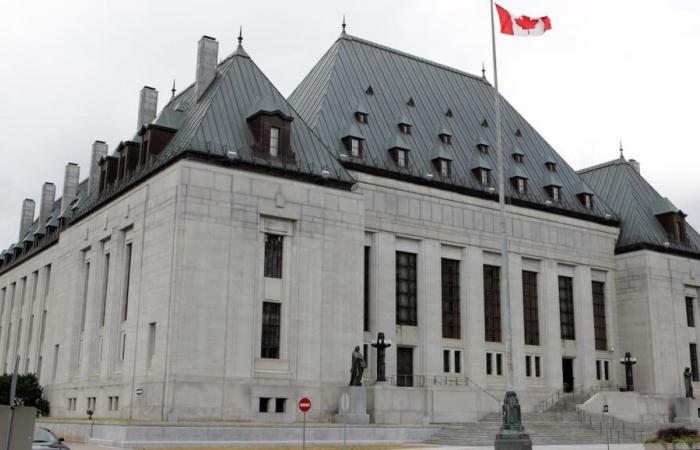The Quebec law prohibiting religious symbols on certain state employees will be scrutinized by the highest court in Canada, the Supreme Court based in Ottawa has just announced.
• Also read: Prayers banned in public spaces: “It’s too easy to ban,” reacts former mayor Tremblay
• Also read: Prayer in schools: fear of being “called racist is not a reason not to act”, insists Bernard Drainville
• Also read: François Legault has a message for “Islamists”: he wants to ban prayer in public spaces
“It is therefore the Supreme Court of Canada which will hear the case for a final legal confrontation,” responded Droits collectives Québec which “resolutely intends” to intervene in the matter.
The Minister of Justice, Simon Jolin Barrette, indicated that he considers the intervention of the federal government in the Supreme Court as an “attack on the autonomy of the federated states.”
“The government of Quebec will fight to the end to defend the Law on State Secularism,” he wrote on X.
The Autonomous Education Federation (FAE) said it was satisfied that its appeal had been heard.
“The FAE is contesting two elements in particular before the courts: the counting operation orchestrated by the Legault government a few months before the adoption of the Law, as well as discrimination in hiring, discrimination in employment and the right to work,” she emphasizes in a press release.
-Also called “Law 21”, the latter prohibits the wearing of religious symbols by judges, prosecutors, police officers, prison guards and teachers in the exercise of their functions.
As soon as it came into force in 2019, it was fiercely contested by several organizations, including the National Council of Canadian Muslims.
A first challenge in superior court, however, largely failed. The Quebec Court of Appeal was then seized of the case, recognizing Quebec’s right to prohibit the wearing of religious symbols in certain circumstances.
Quebec’s highest court also confirmed the validity of the use of the notwithstanding clause to protect the law from legal challenges.
Linguistic rights
And, it should be noted, she had overturned the exemption granted earlier to English-speaking school boards, affirming that the Secularism Act “does not affect the linguistic school rights” that the Charter of Rights and Freedoms confers on them in Quebec.
On the other hand, she had rejected the State’s obligation to sit uncovered in the National Assembly, because “every Canadian citizen has the right to vote and is eligible for federal or provincial legislative elections.”
Unsurprisingly, the decision of the Court of Appeal was contested. And this Thursday, the Supreme Court of Canada announced that it will hear the case, on a date that remains to be determined. As usual, she did not indicate the reasons for her decision.
“The Law on State Secularism is among the most significant actions taken by Quebec society in order to define Quebec’s living together by enshrining the principle of the separation of religions and the State to guarantee in particular the freedom of conscience for citizens, as well as gender equality,” said Daniel Turp and Etienne-Alexis Boucher, respectively president and general director of Droits collectives Québec.






